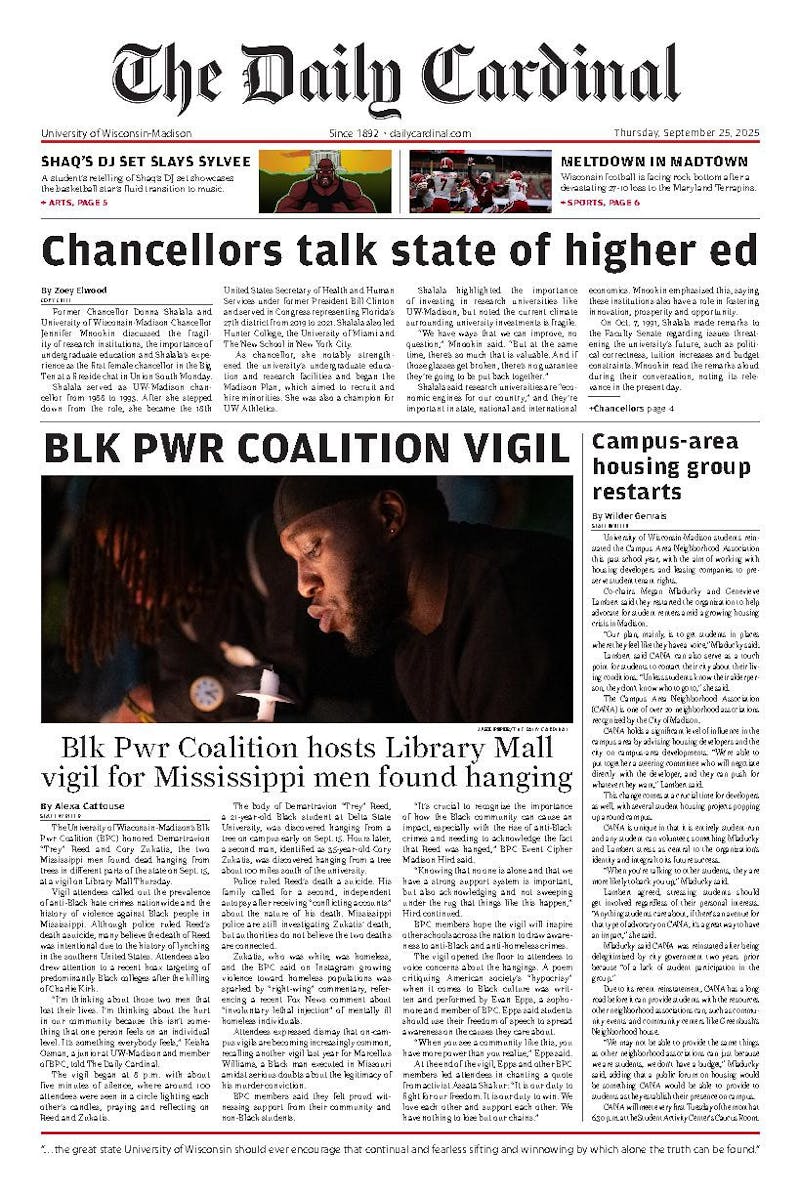Alan Lightman is capable of more than \Reunion."" His early triumph, ""Einstein's Dreams,"" showed the considerable talents of the professor at the Massachussetts Institute of Technology.
Later works, like ""Good Benito"" and ""The Diagnosis,"" cemented his position as an influential author of recent years. When ""The Diagnosis"" was named a finalist for the National Book Award in fiction, it seemed like Lightman would join the ranks of authors like Richard Russo and Tim O'Brien.
The main mistake of his recent work, ""Reunion,"" is that it veers a little too closely to the territory of the latter. ""Reunion"" follows Charles, a forlorn and often unfeeling professor to his 30th college reunion.
Realizing that he has become docile-and even stagnant-teaching literature at a small liberal arts college, Charles hopes to come to terms with his past by using some honesty. Instead of standing by his enforced contentedness, Charles relives the life of his 22-year-old self.
The reunion becomes a collision between the elder, postmodern Charles and his college-age version. The memory takes them both to the arms of Juliana, a delicate and obsessive dancer, pursuing her dream in a New York studio. As Charles the elder looks to his past, Lightman brings out an aging man's fears transposed onto a young man's life.
Immediately, it seems like ""Reunion"" takes one strand of O'Brien's ""July, July"" and unravels it. The overtones of regret and disillusionment come up with equal frequency and familiarity. The setting is nearly the same and the difference between Charles and all of O'Brien's male protagonists is minimal.??
After the astonishing creativity of ""Einstein's Dreams"" and the staggering scope of ""The Diagnosis,"" Lightman cannot produce a book that seems like an echo of a work by a more accomplished author.
""Einstein's Dreams"" has the makings of a classic because it resists and defies classification. ""The Diagnosis"" could very well show up on college syllabi in a few years. These books provided the momentum that could have made ""Reunion"" an instant favorite.
Unfortunately, the book suffers a variety of problems that inhibit in both its plot progression and character development. The framework of the class reunion is unneeded because the meeting of Charles' younger self is the real meaning of the title. With two variations of Charles, Lightman skirts every other character.
There are a few moments in the first few pages of the featherweight novel that offer a glimpse into the elder Charles' construction and his difficulties. The problem is that those few moments only make Charles into an unlikable and cold man. With his musings on relative values and few memories of his ex-wife, he becomes merely a vehicle to go back to his own past.
The young Charles is the one who has some significance, but almost loses his believability in his romance with Juliana. Where the elder Charles is intolerable in his loneliness, the younger is almost implausible in his desperation. The young romance is too forced and the sacrifices Charles makes are nearly far-fetched. Lightman cannot make a decent connection across the 30-year gulf of ages.
""Reunion"" is certainly a disappointment whch is only compounded by the way it seems like a knock-off of O'Brien's recent work.
Sadly, what could have been the novel that sealed Lightman's place in modern fiction may well erase it.
""Reunion"" is published by Pantheon Books.





